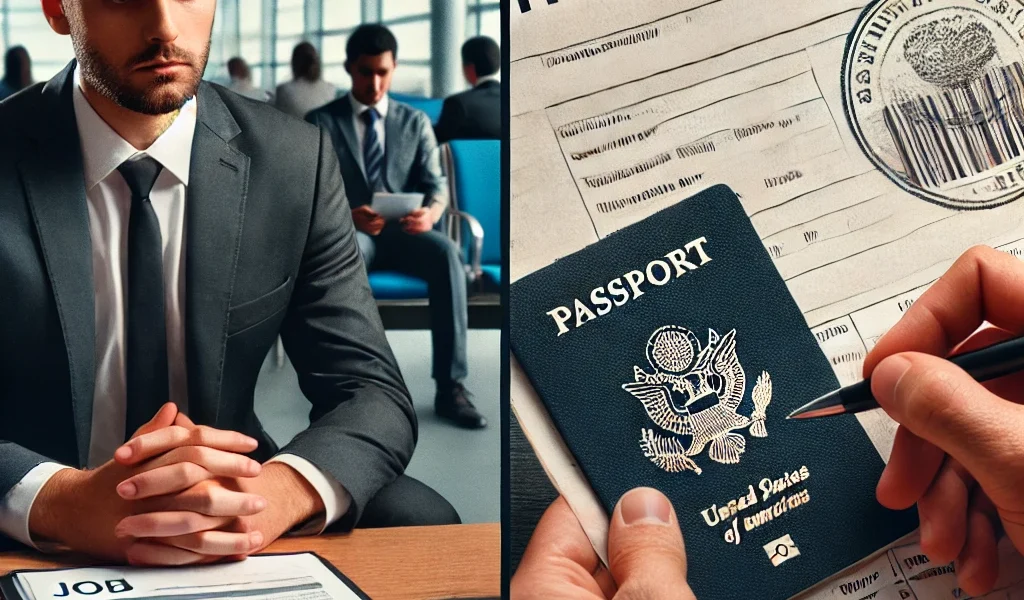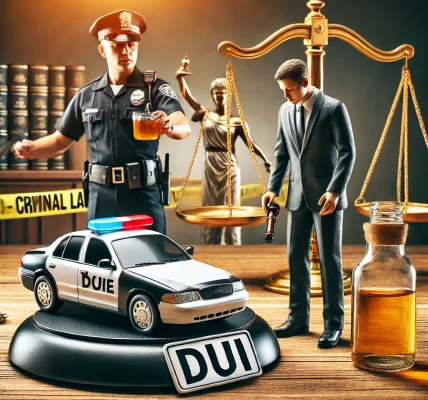Introduction
A criminal record can have long-lasting effects on various aspects of life, including employment opportunities and international travel. Many individuals with a past conviction face difficulties in securing jobs and traveling freely across borders. However, understanding your rights and the legal implications can help you navigate these challenges effectively.
In this blog, we will explore how a criminal record affects employment and travel, legal options available to mitigate these consequences, and practical tips for moving forward.
1. How a Criminal Record Affects Employment
Employers often conduct background checks before hiring candidates. A criminal record may raise concerns regarding trustworthiness, workplace safety, and company reputation.
a) Background Checks in Hiring Processes
Many employers conduct background checks to verify an applicant’s criminal history. These checks can include:
- National and state-level criminal records
- FBI and police reports
- Employment history and references
- Credit history (for financial roles)
Some industries, like healthcare, education, law enforcement, and finance, have stricter background check requirements.
b) Job Restrictions Based on Criminal Record
Certain criminal convictions can disqualify individuals from specific jobs, especially if the offense is related to the industry. For example:
- Financial Crimes (fraud, embezzlement) → Restricted from banking or accounting roles.
- Violent Crimes (assault, domestic violence) → Restricted from security or healthcare jobs.
- Drug-Related Crimes → Restricted from pharmacy, transportation, or government positions.
c) Legal Protections for Job Seekers with Criminal Records
Despite the challenges, legal protections exist for individuals with past convictions:
- Ban-the-Box Laws: Some states and countries prohibit employers from asking about criminal records in the initial hiring phase.
- Fair Chance Hiring Policies: Encourages employers to assess qualifications before considering criminal history.
- EEOC Guidelines: The U.S. Equal Employment Opportunity Commission (EEOC) prohibits blanket discrimination based on criminal records.
d) Expungement and Record Sealing
Some individuals may qualify for expungement (removal of criminal records) or record sealing, making their history inaccessible to employers.
- Eligibility depends on:
- The type of crime
- Time passed since conviction
- Whether probation/parole was successfully completed
Applying for expungement can improve job prospects and provide a fresh start.
2. How a Criminal Record Affects International Travel
Having a criminal record can create barriers when applying for visas or entering certain countries. Some nations have strict immigration laws that restrict or deny entry to individuals with past convictions.
a) Visa Denials Due to Criminal Records
Many countries require visa applicants to disclose criminal history. The following are common reasons for visa denial:
- Crimes involving moral turpitude (fraud, theft, violent offenses)
- Drug-related offenses
- Multiple convictions with prison sentences exceeding a specific duration
Some countries may offer waivers or allow case-by-case approvals.
b) Countries with Strict Entry Policies
1. United States
- The U.S. conducts extensive background checks for visas and Green Card applications.
- Crimes involving moral turpitude can result in inadmissibility, requiring a special waiver of ineligibility.
2. Canada
- Canada has strict policies regarding criminal records.
- Individuals with DUIs, drug offenses, or violent crimes may be deemed inadmissible.
- Rehabilitation programs or temporary resident permits (TRPs) may allow entry.
3. United Kingdom
- Individuals with serious convictions (sentences over 4 years) face travel restrictions.
- Shorter sentences may still require disclosure but are assessed individually.
4. Australia & New Zealand
- Visa applications require full disclosure of past convictions.
- Crimes involving violence, drug trafficking, or fraud can lead to visa denials.
5. Schengen Zone (Europe)
- Short-term travelers typically do not face background checks.
- Long-term visa applicants may need to provide a police clearance certificate.
c) Strategies to Overcome Travel Restrictions
If you have a criminal record but need to travel, consider the following:
- Apply for Record Expungement: Some countries do not require disclosure of sealed records.
- Obtain Legal Advice: Immigration lawyers can guide you through visa applications and waivers.
- Request a Waiver or Rehabilitation: Some countries allow waivers for older or minor offenses.
- Be Honest in Visa Applications: Providing false information can lead to permanent bans.
3. Steps to Improve Employment and Travel Opportunities
a) Seek Legal Advice for Expungement
If eligible, expunging your criminal record can eliminate obstacles in job searches and international travel.
b) Explore Alternative Career Paths
If some industries restrict employment, consider:
- Self-employment or freelancing
- Vocational training in fields with fewer restrictions
- Jobs that do not require background checks (e.g., creative, digital marketing, construction, etc.)
c) Demonstrate Rehabilitation and Good Conduct
Employers and immigration authorities may consider:
- Community service involvement
- Certificates of good conduct
- Educational achievements
- Personal recommendations
d) Use Legal Resources for Travelers
- Research visa policies before planning international trips.
- Consult with immigration lawyers if you anticipate issues at customs.
- Apply for travel waivers in advance.
Conclusion
A criminal record does not have to define your future. While challenges exist in employment and international travel, understanding your rights, exploring legal options like expungement, and taking proactive steps can improve opportunities.
If you are facing difficulties due to a past conviction, consider consulting a legal expert to explore potential solutions. By staying informed and making the right choices, you can rebuild your career and travel without unnecessary obstacles.




